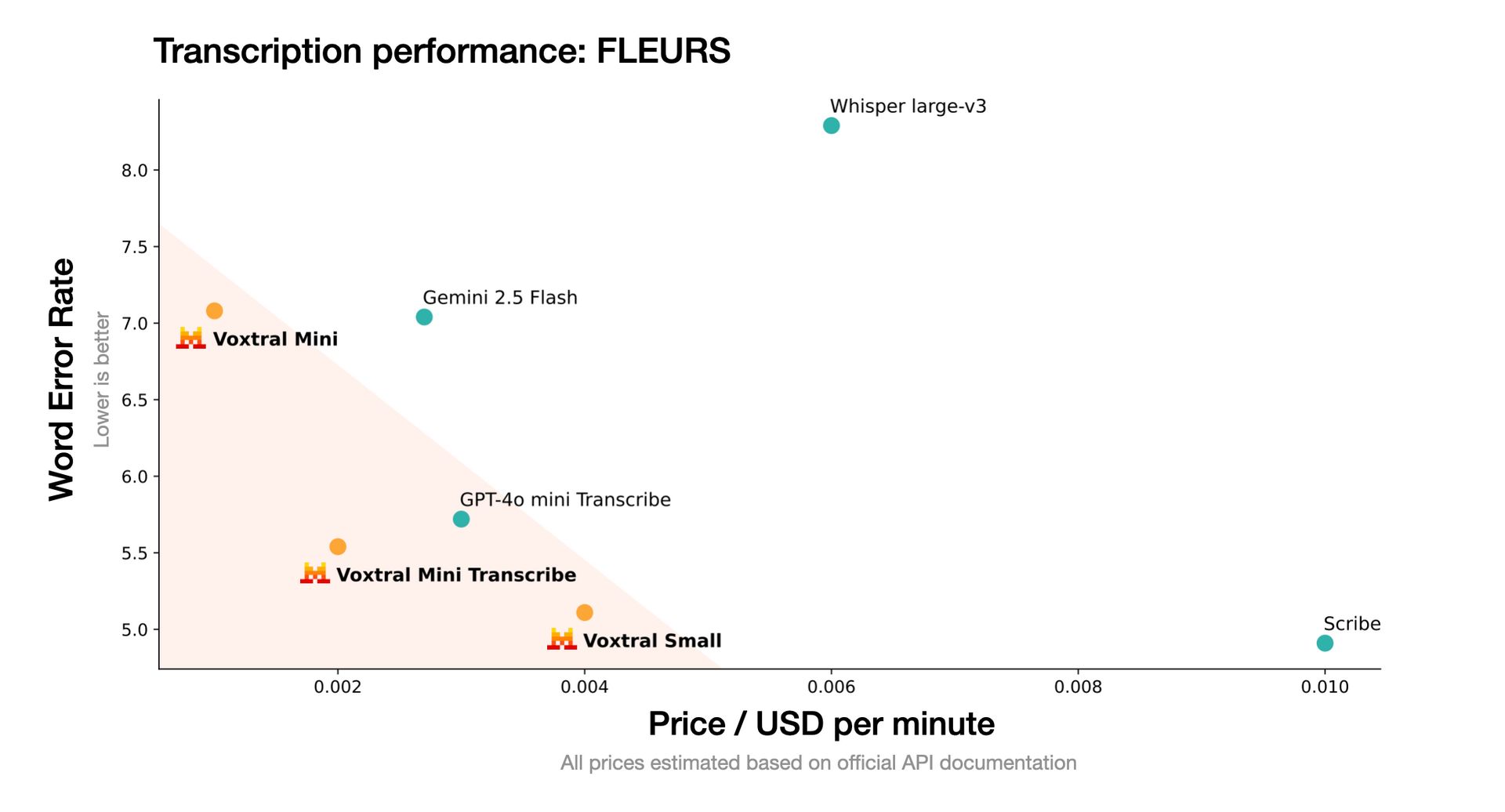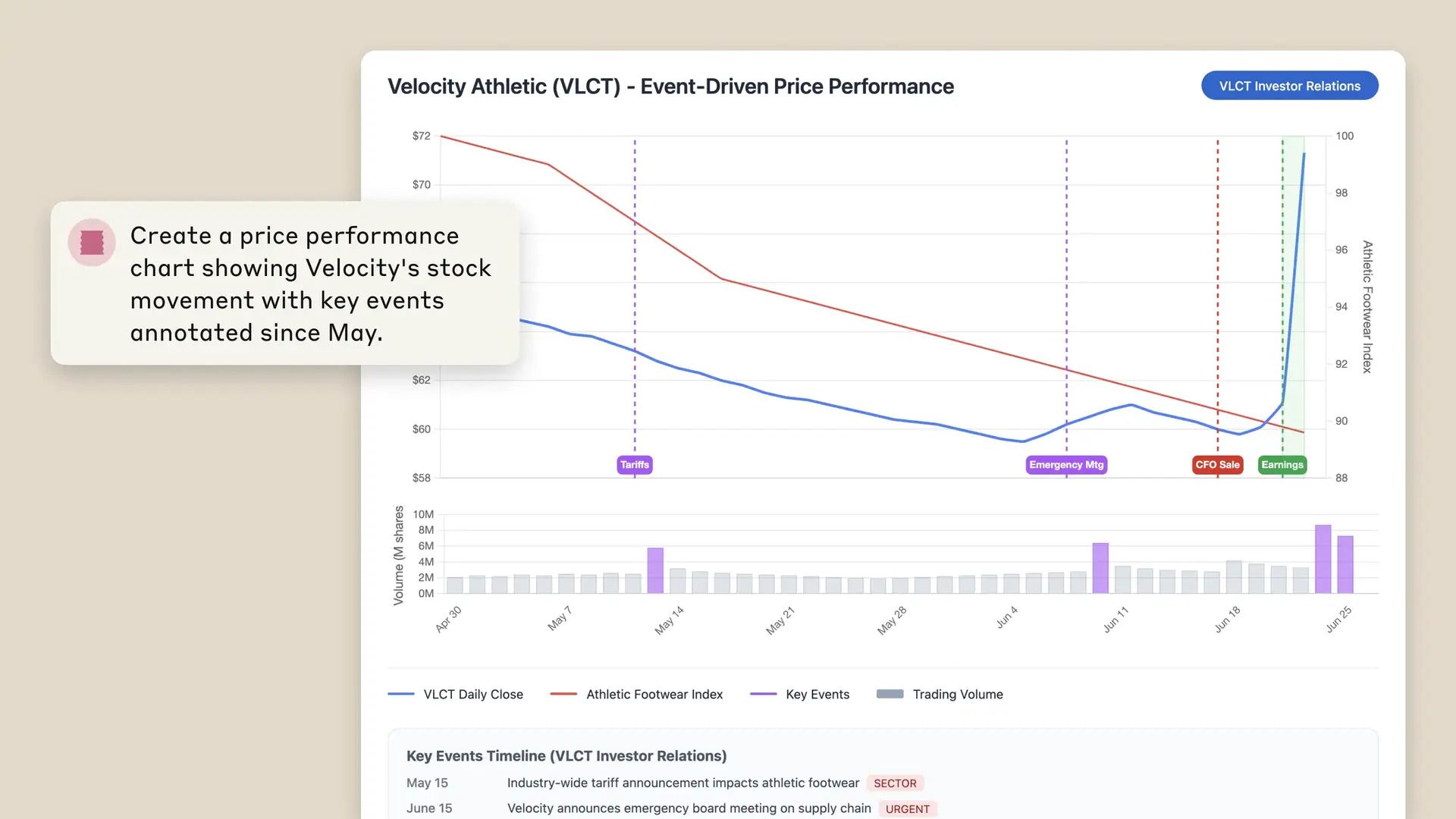- NATURAL 20
- Posts
- Why Coders Still Matter in AI Age
Why Coders Still Matter in AI Age
PLUS: Mira Murati Raises $2B for Thinking Machines Lab, Nvidia to Resume China AI Chip Exports and more.

Today:
Why Coders Still Matter in AI Age
Mistral Unveils Voxtral: Open-Source AI Beats Whisper at Half the Cost
Anthropic Launches Claude AI for Finance Pros via AWS
Mira Murati Raises $2B for Thinking Machines Lab
Nvidia to Resume China AI Chip Exports
Did AI Just Kill Software Devs? ex-Google VP of Engineering Speaks out…
Despite rumors that AI will erase coding jobs, experts say programmers remain essential. Big companies pay billions for simple code editors with chat helpers, not to replace people but to own the data and work process that humans create.
These firms treat the spending as small insurance against missing profits. Developers who learn AI tools will work faster and earn more, echoing—meaning copying—the way early spreadsheet users outpaced other accountants.
Mistral AI launches Voxtral, two open‑source speech models (24 billion and 3 billion parameters) under the Apache 2.0 license. They transcribe 30‑minute audio, answer questions, detect languages, and trigger actions from spoken commands. Tests show they outperform Whisper, GPT‑4o mini, and Gemini 2.5 Flash in accuracy yet cost less than half as much. An optimized endpoint charges only $0.001 per minute, bringing multilingual voice interfaces within reach for laptops and edge devices.

Why this matters
Open access with high quality – Top‑tier voice recognition and understanding are now free to use and adapt, lowering barriers for startups and researchers.
Privacy‑friendly deployment – The smaller model can run on local hardware, letting hospitals, banks, and home gadgets keep sensitive audio data in‑house.
Voice‑to‑action leap – Built‑in tools that map spoken intent directly to software commands push forward hands‑free assistants, robots, and real‑world AI agents.
Anthropic is releasing a finance‑focused version of its Claude AI system. The new Financial Analysis Solution bundles Claude 4 models, code tools and enterprise features so bankers and investors can research markets, digest reports and write software faster. It taps live data from Box, PitchBook, S&P Global and others, and sells through Amazon Web Services, with Google Cloud coming. The move shows Anthropic’s push to turn its chatbot into a research partner.

Why this matters
Industry‑specific AI – Claude now comes pre‑trained for finance, showing how large models are being tailored to solve the daily tasks of specialised fields.
Real‑time, regulated data – Direct links to trusted financial feeds push generative AI into a heavily regulated sector, proving it can meet strict accuracy and privacy demands.
Cloud‑first distribution – Selling through AWS and Google Cloud signals fierce competition to embed AI assistants inside mainstream business workflows.
Mira Murati, former chief tech officer and brief interim CEO of OpenAI, has raised $2 billion for her own venture, Thinking Machines Lab. Investors include a16z, Nvidia, AMD, ServiceNow, Cisco, Jane Street and Accel. The startup plans to unveil a multimodal AI product—able to work with text, speech and vision—in the next few months. Part of the system will be open source, and Murati vows to spread AI tools fairly across businesses and communities worldwide soon.
Why this matters
Fresh competition – A well‑funded new lab challenges the current giants, speeding innovation and reducing monopoly control.
Open science promise – Sharing code and research can let universities, startups and the public inspect and improve powerful models.
Multimodal focus – Technology that understands words, sounds and images together unlocks smoother human‑computer interaction and entirely new applications.
🧠RESEARCH
Open Vision Reasoner (OVR) boosts visual reasoning in AI by mimicking how language models learn—through reward-based training. Using a two-step method—initial language fine-tuning and then image-text reinforcement—the model achieves top scores on math and logic tests. It shows that early training already shapes useful visual thinking patterns.
VFMTo is, a new image tokenizer built on frozen vision foundation models. It improves image generation by preserving key visual details and reducing data repetition. This leads to sharper images, faster training, and efficient token use—achieving strong results on benchmarks without needing extra guidance. Public code release is planned.
This paper questions recent claims about improving AI reasoning through reinforcement learning. It finds that some results may be unreliable due to training data leaking into test sets. Using a new clean dataset, the study shows only accurate reward signals truly help. It urges better benchmarks and broader testing for trustworthiness.
🛠️TOP TOOLS
MathGPT - AI math solver and calculator that provides instant solutions and step-by-step explanations for a wide range of mathematical problems
Imagica - No-code AI development platform that empowers users to create AI applications quickly and easily
Photosonic - AI-powered art generator developed by Writesonic that transforms text descriptions into unique digital images.
HitPaw Watermark Remover - AI-powered tool designed to efficiently remove watermarks, logos, text, and other unwanted elements from both images and videos.
v0 dev - Generative user interface system developed by Vercel Labs that leverages AI to create React code compatible with Shadcn UI and Tailwind CSS.
📲SOCIAL MEDIA
BREAKING: Looks like Cognition Labs (the people behind Devin) just acquired Windsurf!!
What happened to Google's deal with Windsurf?!
What happened to OpenAI's deal with Windsurf?!
We reached out to favorite ex-Googlers to find out:
— Wes Roth (@WesRothMoney)
12:31 AM • Jul 15, 2025
🗞️MORE NEWS
Nvidia will resume selling its AI chips to China after the U.S. agreed to grant export licenses. The decision reverses an earlier ban, easing trade tensions. China remains a vital market for Nvidia’s AI ambitions.
Google will invest $25 billion in AI and data centers across the U.S.’s largest power grid. It will also modernize hydropower plants in Pennsylvania to meet energy demands, supporting AI growth and infrastructure needs.
At a Pittsburgh summit, Trump celebrated $90 billion in AI and energy investments, including major data center projects from Google, Blackstone, and CoreWeave. His administration prioritized winning the AI race over climate concerns, easing energy rules to accelerate U.S. development.
An AI-generated band, Velvet Sundown, gained over 1 million Spotify streams before revealing their songs, images, and backstory were fully AI-created. The revelation sparked calls for legal labels on AI music, raising concerns about transparency, copyright, and fairness to human artists.
Top researchers from OpenAI, Google DeepMind, Anthropic, and Meta warn that AI models may soon lose the ability to show their thought processes. Current systems reveal internal reasoning in human language, offering rare transparency—but this may vanish as more advanced, opaque methods emerge.
Former OpenAI engineer Calvin French-Owen shared a candid look inside the company, describing chaotic growth, duplicated efforts, and a scrappy startup vibe despite its size. He praised the fast pace and product impact, especially Codex’s rapid launch, but noted secrecy and uneven code quality. Contrary to public perception, he said OpenAI takes safety seriously—focusing less on sci-fi risks and more on real-world misuse like hate speech and bio-weapon prompts.
What'd you think of today's edition? |

Reply